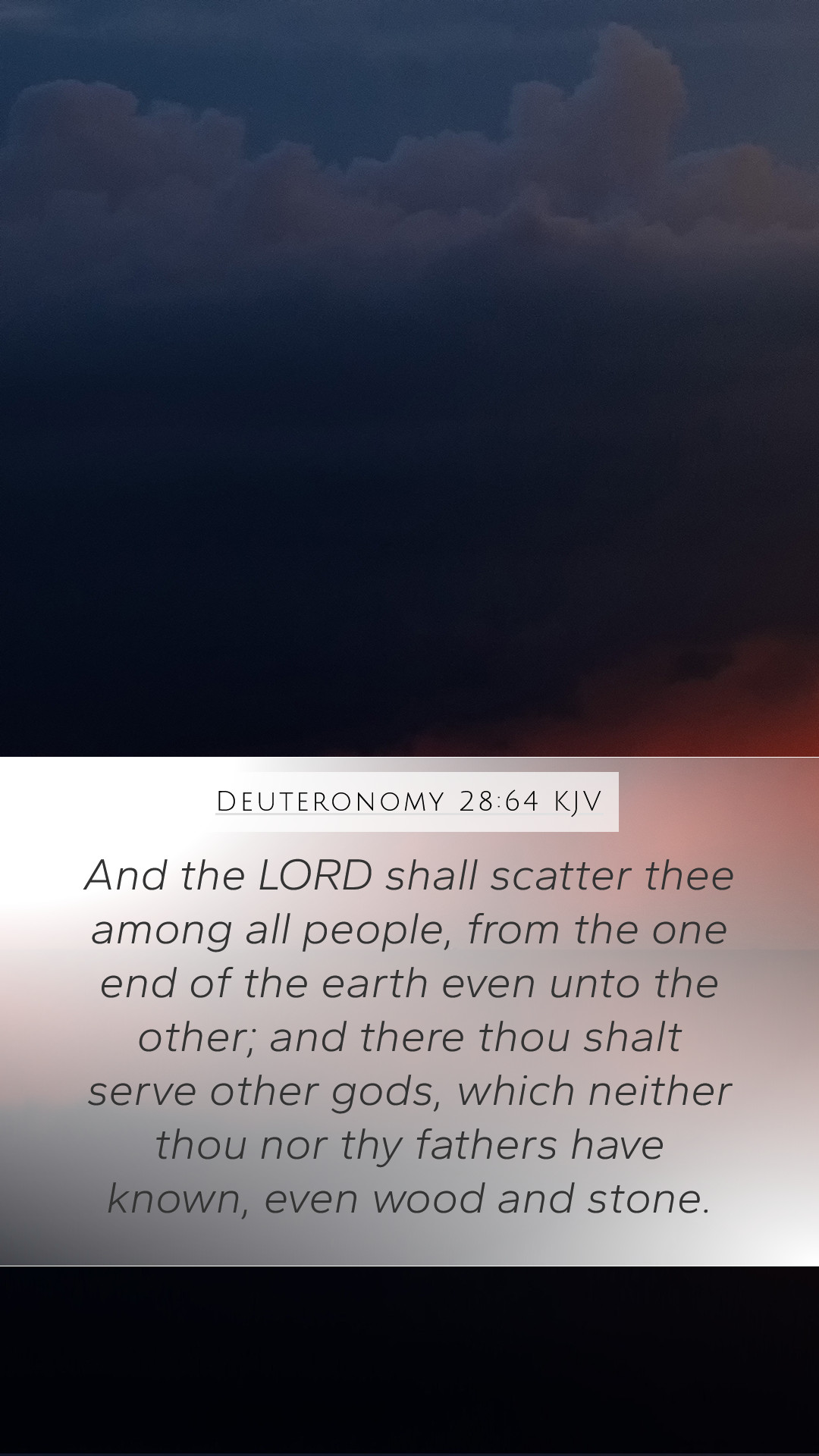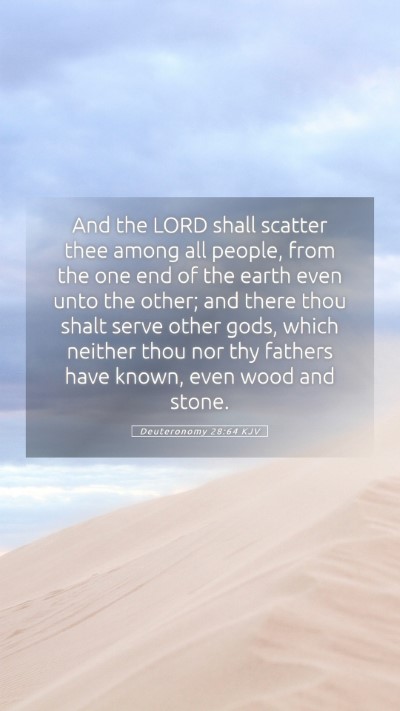Understanding Deuteronomy 28:64
In Deuteronomy 28:64, the LORD declares through Moses a grave consequence for disobedience: "And the LORD shall scatter thee among all people, from the one end of the earth even unto the other; and there thou shalt serve other gods, which neither thou nor thy fathers have known, even wood and stone." This verse highlights the severe repercussions of failing to uphold the covenant with God, emphasizing His justice and the reality of divine punishment.
Bible Verse Meanings and Interpretations
The verse serves as a warning and a reminder of the direct connection between obedience to God and the blessings that flow from it. The consequences mentioned encapsulate a broader biblical theme of judgment and exile, reflecting God's expectations for His people.
Insights from Matthew Henry
According to Matthew Henry, this verse underscores the seriousness of Israel's disobedience. He explains that such scattering among nations signifies a loss of identity and security, pushing Israel into serving foreign deities. This serves as both a punishment and a lesson in the importance of fidelity to God's commands, revealing God's sovereignty over nations and their destinies.
Albert Barnes’ Commentary
Albert Barnes elaborates on the implications of this enforced separation from their land and heritage. He states that being placed amongst foreign nations, worshipping gods made of wood and stone, illustrates the extreme degradation from their initial chosen status. The imagery of worshipping lifeless idols further emphasizes the folly of straying from the one true God. Barnes encourages readers to reflect on the idea that such consequences are not merely historical but serve as theological reflections on the nature of God's governance.
Insights from Adam Clarke
In his commentary, Adam Clarke highlights the significance of the phrase "scatter thee among all people." This dispersal signifies a spiritual and physical separation from God’s blessings, as well as a poignant reminder of the cherishing of divine covenants. Clarke further contrasts the blessings that come from obedience against the stark realities of disobedience, reinforcing that turning away from God leads to profound corruption and despair.
Key Themes in Deuteronomy 28:64
- Consequences of Disobedience: The verse starkly outlines what happens when Israel strays from God's laws; they face exile and spiritual degradation.
- Divine Justice: It is a manifestation of God's justice; choosing to abandon the covenant results in tangible repercussions.
- Idolatry: Serving other gods symbolizes a rejection of the true God, which leads to spiritual blindness and despair.
- Historical Context: Understanding the historical background of Israel's exiles gives insights into the seriousness of their covenant relationship with God.
Application of Deuteronomy 28:64 to Daily Life
In considering the importance of this verse today, one can derive lessons about the significance of loyalty and commitment to one’s faith. The scattering represents not just physical separation but emotional and spiritual alienation from God. Believers are encouraged to maintain their fidelity to their faith in all circumstances, understanding that turning away may lead to negative spiritual experiences.
Cross References
- Leviticus 26:33: "And I will scatter you among the heathen, and will draw out a sword after you: and your land shall be desolate, and your cities waste."
- Jeremiah 9:16: "I will scatter them among the heathen, whom neither they nor their fathers have known: and I will send a sword after them, till I have consumed them."
- Ezekiel 36:19: "And I scattered them among the heathen, and they were dispersed through the countries: according to their way and according to their doings I judged them."
Conclusion
Deuteronomy 28:64 serves as a warning not only to ancient Israel but also to contemporary believers about the significance of maintaining faithfulness to God. The verse’s implications concerning idolatry and punishment remind us of the importance of devotion in our spiritual lives. Through diligent study and reflection on such verses, we can gain profound insights into both historical context and personal faith practice.


